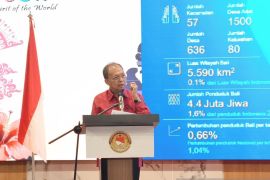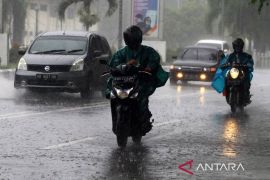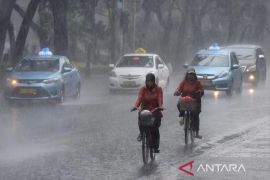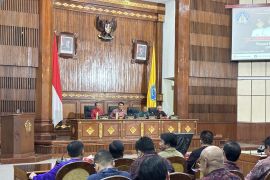Jakarta (Antara Bali)- Illegal wildlife trade is a serious crime that according to the United Environment Program (UNEP) is similar to drug trafficking and corruption, Executive Director of the Indonesian Biological Diversity (Kehati) M.S. Sembiring stated.
According to data of the Indonesian Environmental and Forestry Affairs Ministry's Director General, 190 cases related to protected flora and fauna were reported in 2015.
In February 2016, WWF-Indonesia recorded 18 cases related to protected wildlife that were legally processed by the police.
Since 2012, the Indonesian Elephant Conservation has recorded the deaths of at least 152 Sumatran elephants (Elephas maximus sumatranus).
The figure might increase significantly as 13 elephant habitats were destroyed as forests were converted into plantations.
Poachers have targeted exotic species, such as orangutans, tigers, rhinos, and elephants for their ivory, according to Animal Indonesia, a local partner of Kehati.
Animal Indonesia President Director Suwarno said the demand for wildlife is still high despite the public knowing that the animals are categorized as rare and protected.
"The price is higher when the animal is protected," he added.
Suwarno, however, regretted that the supervision was not up to the mark despite the high demand.
In Indonesia, the supervisory task comes under the Natural Resources Conservation Agency set up in each province.
Animal Indonesia once found lemurs, langurs, pangolins, and baby gibbons on sale in a Sunday market in Bengkulu and Ilir 16 Market in Palembang, South Sumatra.
The illegal trade of wildlife is rampant as legal enforcement is weak, he pointed out.
Protected animals rescued from poachers and traders are usually handed over to the Center of Wildlife Rescue (PPS), ex-situ conservation institutions, zoos, and other wildlife rehabilitation centers.
One PPS each has been set up on the islands of Java and Sulawesi.
According to UNEP's report, eco-crime has hit a record high at up to US$258 billion, outstripping the illegal trade in small arms, as international criminal gangs and militant groups profit from the plunder of Earth's resources. (WDY)









